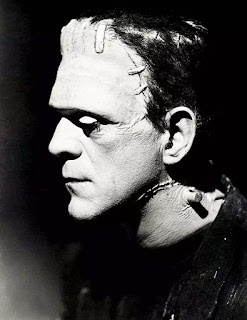a woman, a “widow”, a nameless creature with dark, cold memories.
This is the person we focus on. Our knowledge of her is quite limited. She may be a bit paranoid, indifferent, occasionally harsh, and have an abundance of untimely perceptions. She liked a deserted swimming pool and turned it into a pond. Her husband died of cancer of the whole body. One night, she saw him opened the refrigerator and drank a carton of milk, and so on. None of this prevents us from treating her as our friend. Like us who just intervened in the story, she has no retreat and can't restore the truth by tracing back the information flow that was cut off, so our situation is similar: it has no "name" and is waiting to be "named"; It has no answer, waiting for the outside world to respond to various questions.
It's like the setting of a puzzle game: The leading role woke up in a strange place, drunk, drugged or just knocked down, dazed, and with amnesia (it even uses the name of an enemy or the beer logo as its own name). We are on the same starting line as "I", or our speed is sometimes a little faster-but unfortunately, the front is still unknown. There are not only hypnotic words of psychologists, but also in-vivo transformation of text spores. The experience collected by "I" for us may be canceled at any time. We have to stand on such an unstable foundation and endure the inexpressible and lingering "nameless" state.
"Non-linearity" is the first word I remember in the book, which can be used to describe the imbalance we feel about the whole story.
As a member of the exploration team, my task seems to be to explore and exhaust an active/passive isolated closed environment. However, in the process of pushing outward, we found that the colorful jungle vegetation and the crying like animals are too thin (just like some perfunctory stage scenery), which cannot provide a deep and exploitable space. So we can only look up or down for extension. The sight seen in the underground tower has an unreal surreal feeling, while the sight seen in the lighthouse is clear and real. The underground tower is in the darkness of the ground, and the lighthouse is on the ground by the coast. Up and down, bright and dark, real and virtual constitute two fulcrums, and the characters in the book swing back and forth between these two fulcrums. "
What secrets can be hidden in my barren and desolate memory? Maybe all my memories are secret-maybe all these are delicious.
The "crawler", the spokesperson of the X area, probably feels this way. It has a human body, and then turns the consciousness and memory it swallowed into "words", like indigestible seeds daubed the walls of the underground towers. Those disorderly and chaotic sentences give us a horrifying experience, like the plague, like nails, withered hands, and slices of the heart, like the fanatical sermons of the red-eyed monks. They themselves seem to have a dark ritual sense, belonging to a certain religion that is destined to be unsaved.
But "I" is like a small piece of bait or, more accurately, a "God" tied to a string and thrown into a cage.(The other end of the string was in the hands of the southbound bureau. The vibration of every tooth rub makes managers who hold their breath to listen shudder.)The savage animals in the cage eat my body respectively because my blood and flesh are holy blood and holy communion, which contain spirit and consciousness, as well as the basic functions of words……
Therefore, one exploration team after another is a group of edible and undeveloped enlighteners, who unconsciously contribute mature brains and cultivate civilization in the enlightenment stage——Wait. We have not yet confirmed whether the X area is "ignorant". Perhaps its expansion posture is only "defiled" by the observation of external low-level civilization, which means that it wants to teach us something we don't know; It is also possible that it is more "ignorant" than we thought. It will cut a hole in the belly of the world and drag all people into the filthy torrent.



